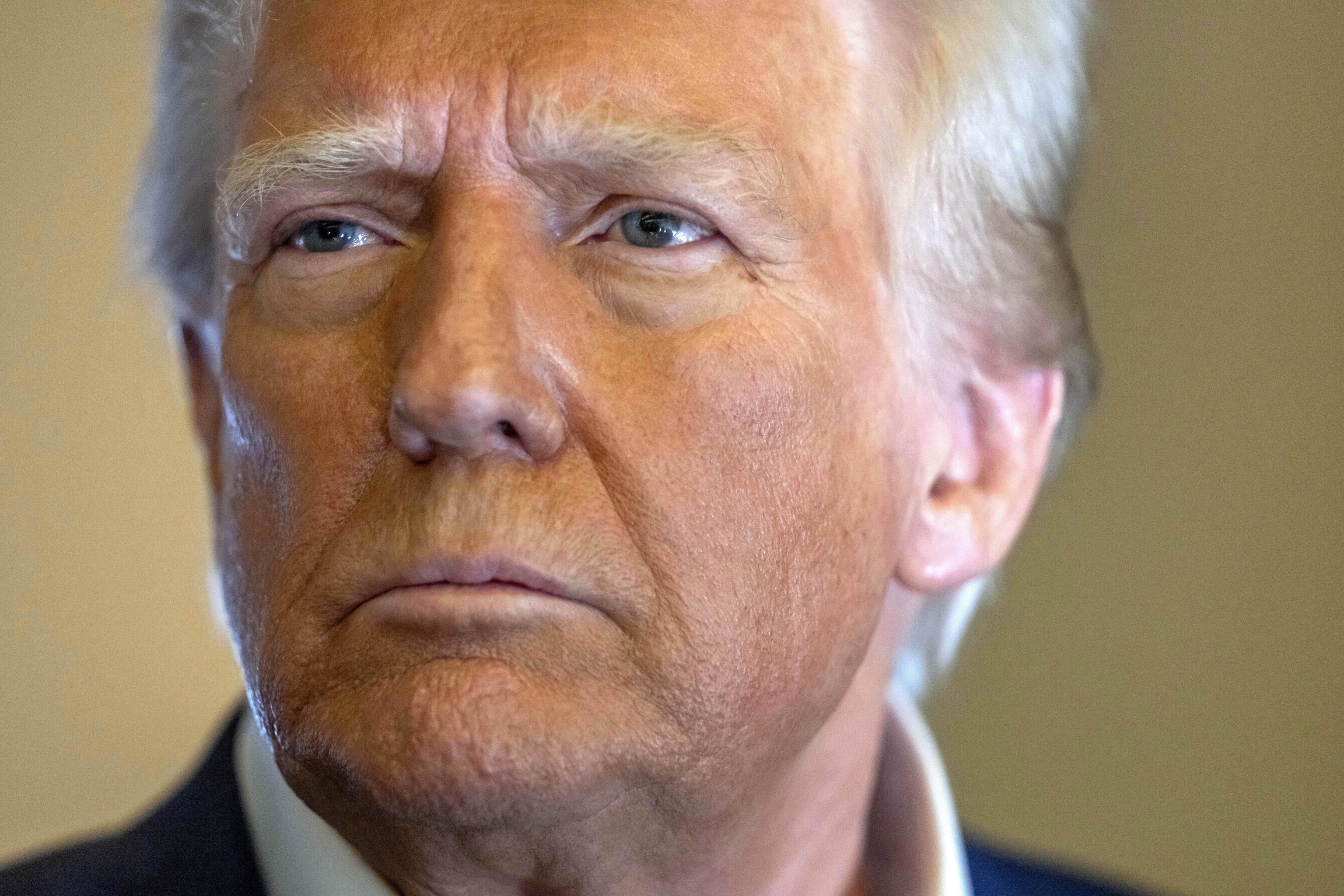A spectacle, a staging, and a farce. The shortest trade war in history, lasting just over eight hours, concluded tonight shortly after it began with an agreement between the governments of the United States and Colombia to continue with the deportations of illegal immigrants and avoid tariffs.
The show began in the late afternoon, American time, when Donald Trump announced on his Truth Social account a cascade of commercial sanctions against the Colombian government in response to what he considered a threat to national security, after President Gustavo Petro 's team did not allow two US military planes carrying Colombian immigrants for deportation to land. Washington claimed there was a prior agreement, approval from Bogotá, but Petro changed his mind at the last minute, citing that the treatment of his citizens was not "dignified," a recurring complaint in recent years that had sometimes led to protests or even the banning of landings.
Trump considered the act a challenge, an offense, and warned that he would immediately impose 25% tariffs on all Colombian products, which would increase to 50% within a week, in addition to travel bans on government members and their families, visa suspensions, or thorough checks on all Colombians and all shipments by land, sea, or air. Instead of appeasing Trump, as many leaders had done in the past, Petro used the same tactics and retaliated through his Twitter account, instructing for the automatic replication of the 25% tariffs, targeting over 15,000 Americans who, according to him, were irregularly in his country. And invoking Abraham Lincoln, Colonel Aureliano Buendía, or Walt Whitman in a lengthy message paraphrasing the most magical and surrealistic realism of literature.
However, as quickly as it came, the trade war was over. Around 11:00 PM, Washington time, both parties issued statements, each with its version of what happened and what will happen, declaring the incident resolved. "The Government of Colombia has accepted all the terms of President Trump, including the unrestricted acceptance of all illegal foreigners from Colombia returning from the United States, even on US military aircraft, without limitations or delays," celebrated the White House.
"Based on this agreement, the fully drafted IEEPA tariffs and sanctions will be kept in reserve and will not be signed unless Colombia fails to comply with this agreement," the message continues. However, not everything remains the same. "Visa sanctions issued by the State Department and enhanced Customs and Border Protection inspections will remain in effect until the first plane loaded with deported Colombians is successfully returned," adds the press secretary's statement.
"The Government of Colombia reports that we have overcome the impasse with the Government of the United States. In this context, Foreign Minister Luis Gilberto Murillo and Ambassador Daniel García-Peña will travel to Washington DC in the coming hours to hold high-level meetings to follow up on the agreements resulting from the joint work and exchange of diplomatic notes that took place today between the two governments," says the Foreign Ministry's text.
Many twists in form, but a clear idea at the core. "We will continue to receive Colombian men and women returning as deportees, guaranteeing them dignified conditions as citizens with rights. The Government of Colombia, under the guidance of President Gustavo Petro, has made the presidential plane available to facilitate the return of compatriots who were supposed to arrive in the country this morning on deportation flights. Colombia reaffirms that diplomatic channels of dialogue will be maintained to ensure the rights, national interest, and dignity of our citizens," concludes the message.
With these eight hours of tension and frenzy, after Trump mobilized the State Department and abruptly canceled visas and announced consular closures, the new administration believes it has scored an important point, sending a strong message to all countries in the region, making it clear what to expect if they do not accept deportations ordered by Trump and on his terms, including military planes, as stated in the initial communication that Petro himself helped spread on social media.
"There is a bright light on the USA. and indeed, on the whole world, since the 2024 presidential elections," cryptically celebrated the Republican president. "The United States will not back down when it comes to defending our national security interests," added the Secretary of State, Marco Rubio.
In practice, little has changed, but the narrative and the playing field are even more unstable. The USA has been deporting Colombian citizens for years and will continue to do so. The exact form, whether by plane or otherwise, is not the main concern of the White House, which has made it clear that it will not hesitate to deploy all commercial artillery, without fear of overreacting. Colombia's response is that they are now more open to the world, hinting that they will have to reduce their dependence on the northern neighbor. China's government quickly sent a message emphasizing the good relations between the two countries and subtly offering to fill the possible void left by Washington's traditional ally in the region.
Petro, on the other hand, boasted on his X account of not being afraid of the USA and mocked the travel ban threat by saying he doesn't "like traveling to the USA much, it's a bit boring, but I confess there are commendable things," mentioning "the black neighborhoods of Washington," "Walt Withman and Paul Simon and Noam Chomsky and Miller or Sacco and Vanzetti." He also said that Trump's actions were a sign that with "his economic power and arrogance, he tries to stage a coup as they did with Allende. But I die in my law, I resisted torture and I resist you." And yet, a few hours later, the "impasse" was resolved, returning to the beginning. To flights and deportations. But, at least for now, without 25% tariffs.
